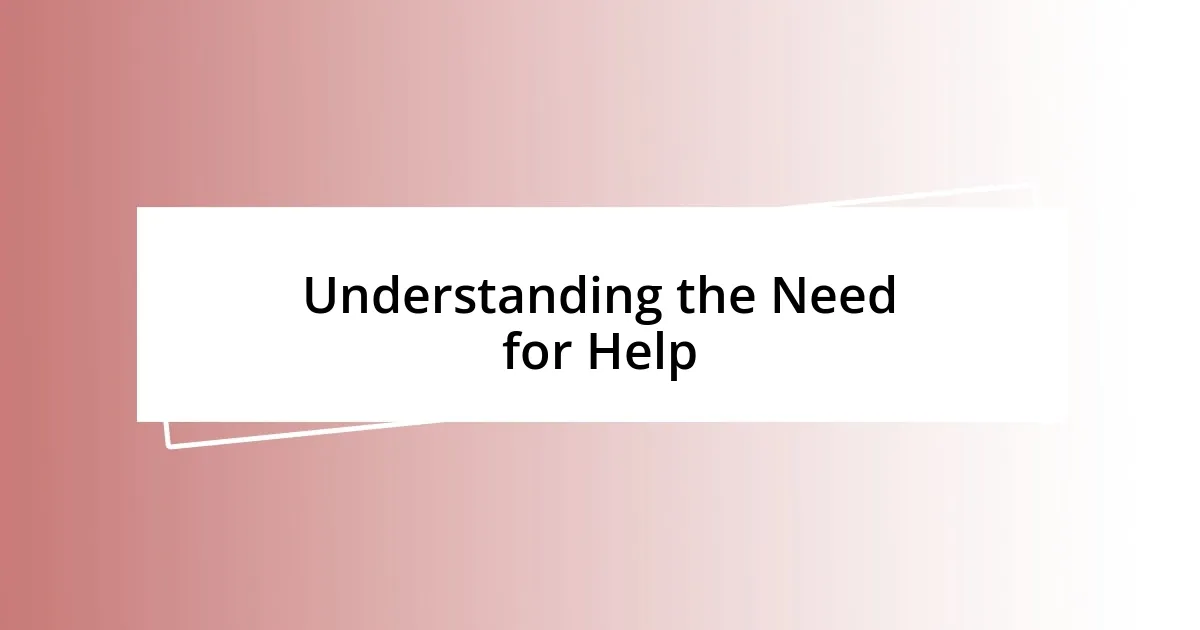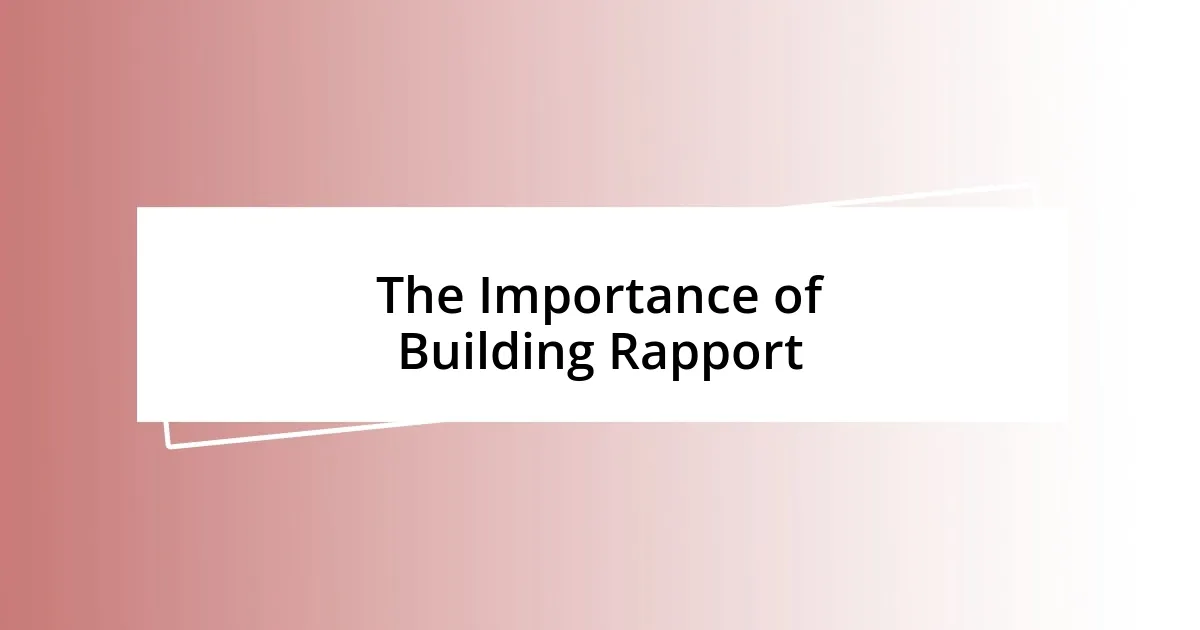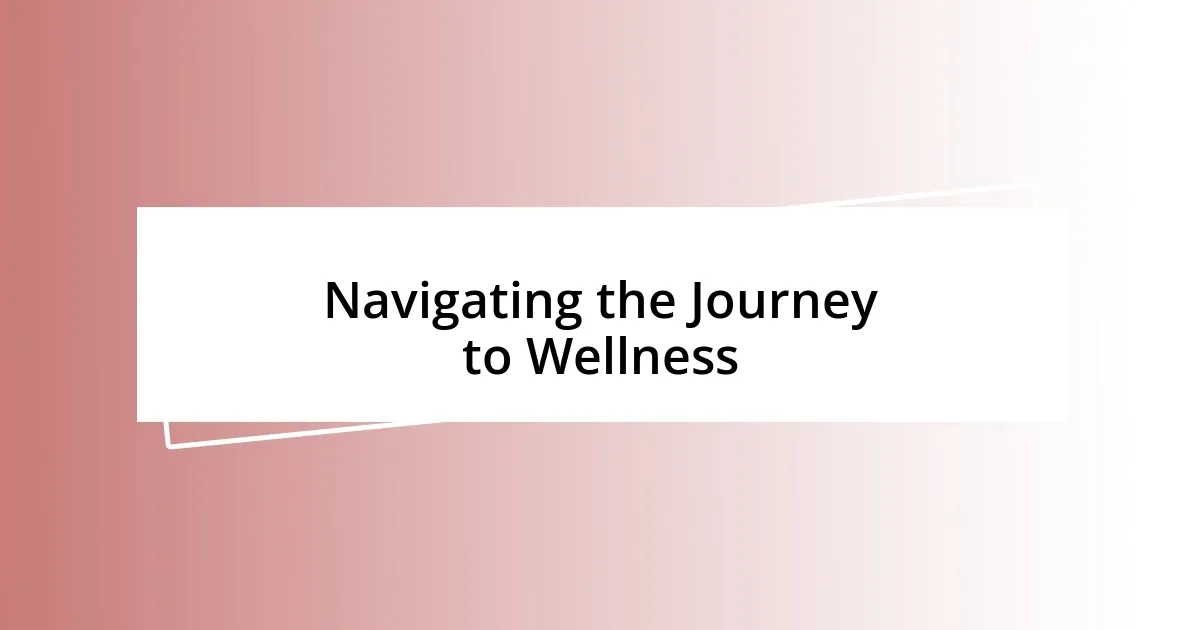Key takeaways:
- Recognizing the need for help often stems from self-reflection on feelings of sadness or being overwhelmed.
- Different professionals (psychologists, counselors, life coaches) serve distinct roles in supporting mental wellness.
- Building rapport with a therapist is essential for fostering vulnerability and effective healing.
- Setting and adjusting goals in therapy enhances the process, providing direction and a sense of accomplishment.

Understanding the Need for Help
Understanding the need for help often starts with recognizing our own limits. I remember a time when I felt completely overwhelmed after juggling work and personal life. It was like standing on a tightrope where every added stress felt like a gust of wind threatening to knock me off balance. Have you ever felt that way?
Many of us struggle with the idea of seeking support because we fear it might be a sign of weakness. I certainly felt that pressure. When I finally reached out to a counselor during a particularly challenging period, it felt daunting, but it also turned out to be a liberating experience. Isn’t it interesting how asking for help can transform our struggles into shared experiences?
Understanding when to seek help requires honest self-reflection. I often ask myself, “Am I continually feeling stuck or sad?” Recognizing these patterns can be the first step towards change. It’s crucial to remember that seeking support isn’t just about facing crises; sometimes, it’s about nurturing our overall well-being.

Recognizing When to Seek Support
Recognizing when to seek support can be a tricky endeavor. I recall a time when I kept brushing off my feelings, telling myself I just needed to “tough it out.” It wasn’t until a close friend pointed out that I seemed more drained than usual that I truly stopped to reflect. Those moments of self-awareness can be pivotal, serving as the nudge we need to consider reaching out for help.
Here are some signs that it might be time to seek support:
- Persistent feelings of sadness or hopelessness that linger.
- Struggling to handle daily responsibilities or feeling overwhelmed by tasks.
- Noticing significant changes in appetite or sleep patterns.
- Feeling isolated or detached from friends and family.
- Experiencing unexplained physical symptoms, like chronic fatigue or tension.
- Difficulty concentrating or experiencing memory issues.
- Engaging in risky behaviors, like substance misuse.
Paying attention to these signs can be a vital step in taking care of your mental health. I’ve learned that acknowledging the need for support can pave the way for healing rather than feeling like a setback.

Exploring Different Types of Professionals
Exploring the different types of professionals can really shine a light on who might be best suited to help us in our journey. For instance, I once worked with both a therapist and a coach. While my therapist helped me unpack my emotions and faced some childhood experiences, my coach focused on actionable steps and goal setting. It was fascinating to see how different approaches could work in conjunction to support my growth.
When it comes to seeking professional help, we can consider psychologists, counselors, and life coaches, among others. I remember feeling a bit lost when I first tried to distinguish between these roles. Psychologists often dive deep into mental health issues, while counselors can help with emotional support and personal challenges. Life coaches, on the other hand, tend to guide individuals towards achieving personal and professional goals. Understanding these differences can be enlightening!
Here’s a basic comparison to help clarify these distinctions:
| Type of Professional | Focus Area |
|---|---|
| Psychologist | Mental health diagnosis and therapy |
| Counselor | Emotional support and guidance |
| Life Coach | Goal setting and personal development |

Questions to Ask Potential Therapists
When searching for a therapist, it’s crucial to ask about their approach to therapy. I once met with a therapist who immediately started discussing techniques without first understanding my concerns. This conversation made me realize that a tailored approach was essential. So, I now always ask, “How do you customize your methods to fit a client’s unique needs?” It sets the stage for a more meaningful connection.
Another important question to consider is about their experience with specific issues that resonate with you. If you’re struggling with anxiety, for example, I recommend asking, “What’s your experience in treating anxiety disorders?” During my own journey, I found that a therapist’s expertise can significantly impact the effectiveness of the sessions. It’s comforting to know that they’ve handled similar cases successfully.
Lastly, discussing logistical aspects can also be revealing. Questions such as “What is your cancellation policy?” or “Do you offer virtual sessions?” can show how they prioritize flexibility and accessibility. I remember feeling anxious about needing to cancel appointments, but a therapist who was understanding and accommodating made the process much less stressful for me. It’s those details that contribute to a supportive therapeutic experience.

The Importance of Building Rapport
Building rapport with a professional is key to unlocking effective help. I realize this from my own experience—when I first met my therapist, the warmth and openness in our initial sessions created a space that felt safe. This connection allowed me to express my deepest thoughts without fear of judgment, which is essential for meaningful progress.
Have you ever walked into a room where you felt immediately at ease? That’s what a strong rapport can do. I remember attending a workshop led by a facilitator who took the time to genuinely connect with participants before diving into the exercises. It transformed the atmosphere completely. Suddenly, we were all on the same page, eager to share our stories and support each other. The more we resonate on a personal level, the better the outcomes can be.
Without rapport, it’s challenging to be vulnerable and open up about our struggles. I once hesitated to share my emotional experiences with a consultant who seemed overly clinical. I left that session feeling frustrated, wishing I had established a better connection. It’s a reminder that building trust isn’t just a formality—it’s the foundation for effective healing and growth.

Setting Goals for Therapy Sessions
Setting goals for therapy sessions can significantly enhance the effectiveness of the process. I’ve discovered that having clear objectives not only gives direction to my sessions but also provides a sense of accomplishment as I tackle each one. For instance, I remember setting a goal to improve my communication skills. Each week, I would focus on specific strategies, and witnessing the progress felt empowering.
When I think about goal-setting, I also recall how crucial it is to revisit and adjust these goals as needed. There was a time when I aimed to address my anxiety in a specific way, but as I engaged in therapy, I realized that I also needed to work on building self-compassion. This shift in focus opened up new avenues for healing, reminding me that flexibility in our goals is just as important as the goals themselves.
Have you ever felt stuck in a particular mindset? I certainly have. During my therapy journey, I learned that articulating my goals made it easier to overcome those moments of stagnation. I once wrote down a goal to enhance my resilience, and each step I took toward that goal became a small victory. This practice not only motivated me but helped create a roadmap for navigating challenging emotions along the way.

Navigating the Journey to Wellness
Navigating the journey to wellness can feel like a winding road filled with unexpected turns. I vividly remember the time I set out to explore my mental health. It was intimidating at first, but I soon realized that it wasn’t just about the destination; it was about the experiences and revelations along the way. Have you ever embarked on a journey only to discover something new about yourself at every stop? That’s precisely what happened to me.
During my exploration, I learned that checking in with myself regularly was crucial. There were moments when I felt overwhelmed, like I was hitting a wall. I remember one particular session where I found myself questioning everything I had worked on. Instead of retreating, I shared those feelings with my therapist, and that conversation opened a door to deeper understanding. It taught me that openness leads to growth—it’s okay to acknowledge doubts as part of the healing process.
As I navigated my path, I also realized the importance of celebrating small victories. I made a habit of jotting down moments where I felt progress, however minor. One day, I celebrated successfully expressing my needs in a conversation—a significant feat for someone who often struggled with that. This practice not only boosted my confidence but also kept me focused on the positive strides I was making, reminding me that every little step counts in the grand journey toward wellness.














